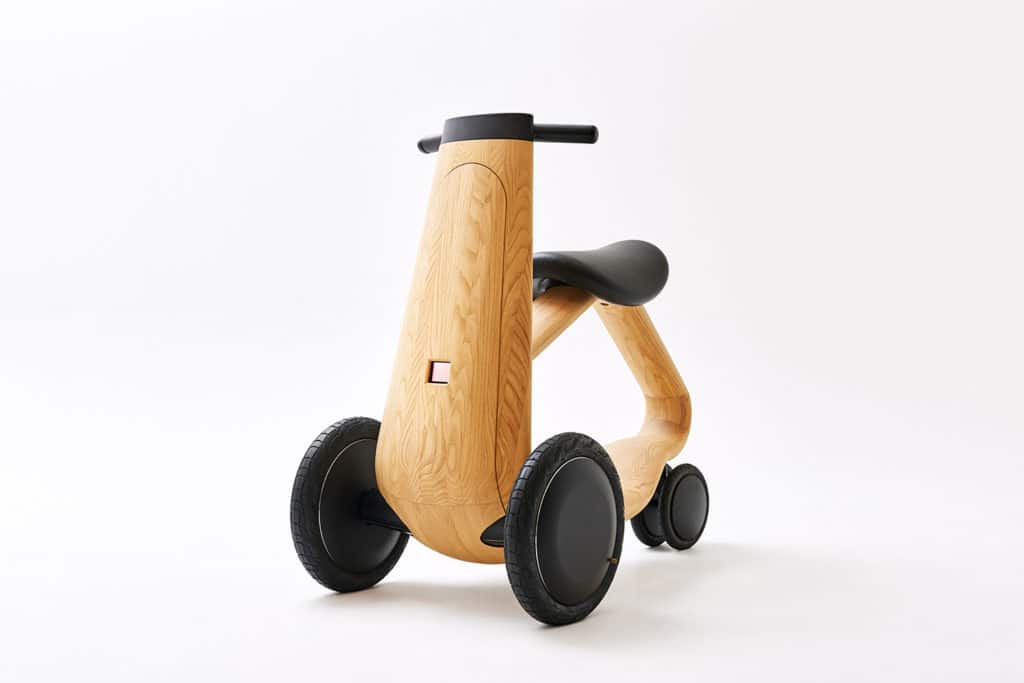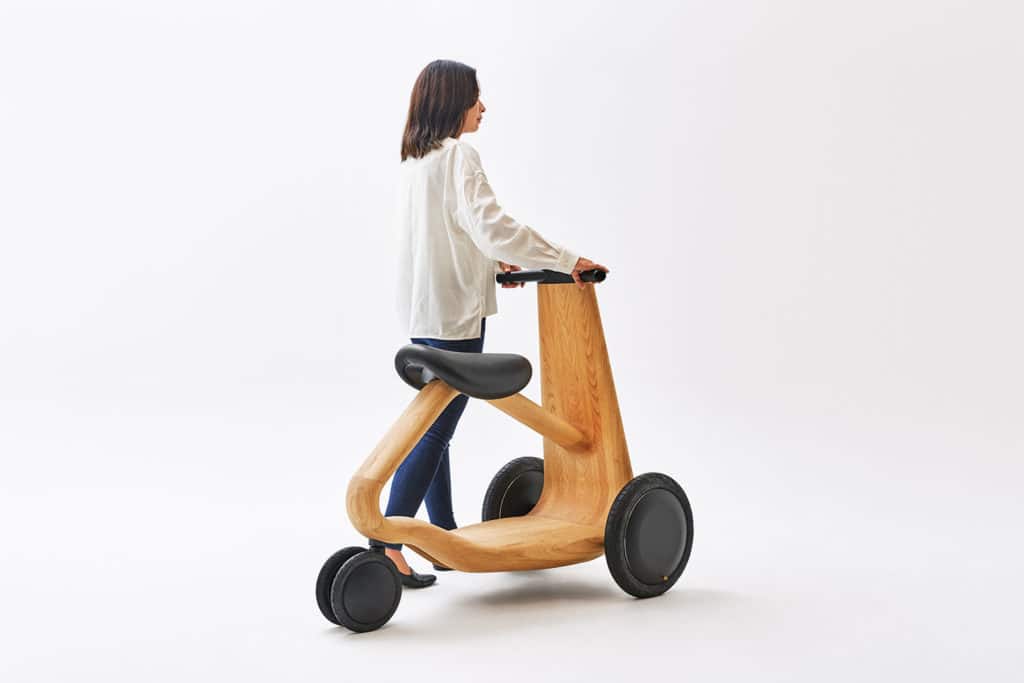Japanese designer Mikiya Kobayashi, who is usually involved in product design, most often furniture and home accessories, has designed the concept of the Ily-Ai electric tricycle. It is the world’s first multi-functional, electric, intelligent personal mobility vehicle (PMV) with a modern and sustainable heart and a design that recalls the toys of the past.
The ILY-Ai scooter concept was developed by Tokyo-based Kobayashi in collaboration with the car company Aisin Seiki and Karimoku, one of Japan’s main wood furniture manufacturers. Designed for the elderly and individuals with limited mobility, the ILY-Ai scooter tries to minimize deficiencies and add more beauty to the environment with its peculiar and discreet look.

It comprises a frame made of aluminum with a soft wooden casing, a comfortable seat, two larger electrically driven wheels at the front, and a single rear wheel. The structure is made from chestnut wood, as it is one of the lightest hardwoods available – about 75% lighter than oak – and highly water-resistant.
The components are hidden behind the front panel and inside the front wheels. A rechargeable lithium-ion battery that powers ILY-Ai can be removed easily for charging. The top speed is set at 10 km/h (6.2 mph), slightly faster than walking but safe for adults. The target distance of travel before it needs recharging is 20 Km (12 miles). It also has a built-in safety sensor that stops it in the event of any obstacle.

Everyone can benefit from the ILY-Ai, but the main target market is people with mobility problems, such as active adults 60 years of age or older. ILY-Ai allows this age group to maintain greater independence and mobility, promoting longer life and safety.
ILY-Ai escapes the visual trend of electric scooters and replaces the futuristic and metallic look with a matte body, in a virtually unique body, and at very low speeds. For now, this is a functional prototype, and other parameters are not known. It is anticipated that ILY-Ai will be available by 2020 in time for the Tokyo Summer Olympics, and the cost will remain less than $2,000.
